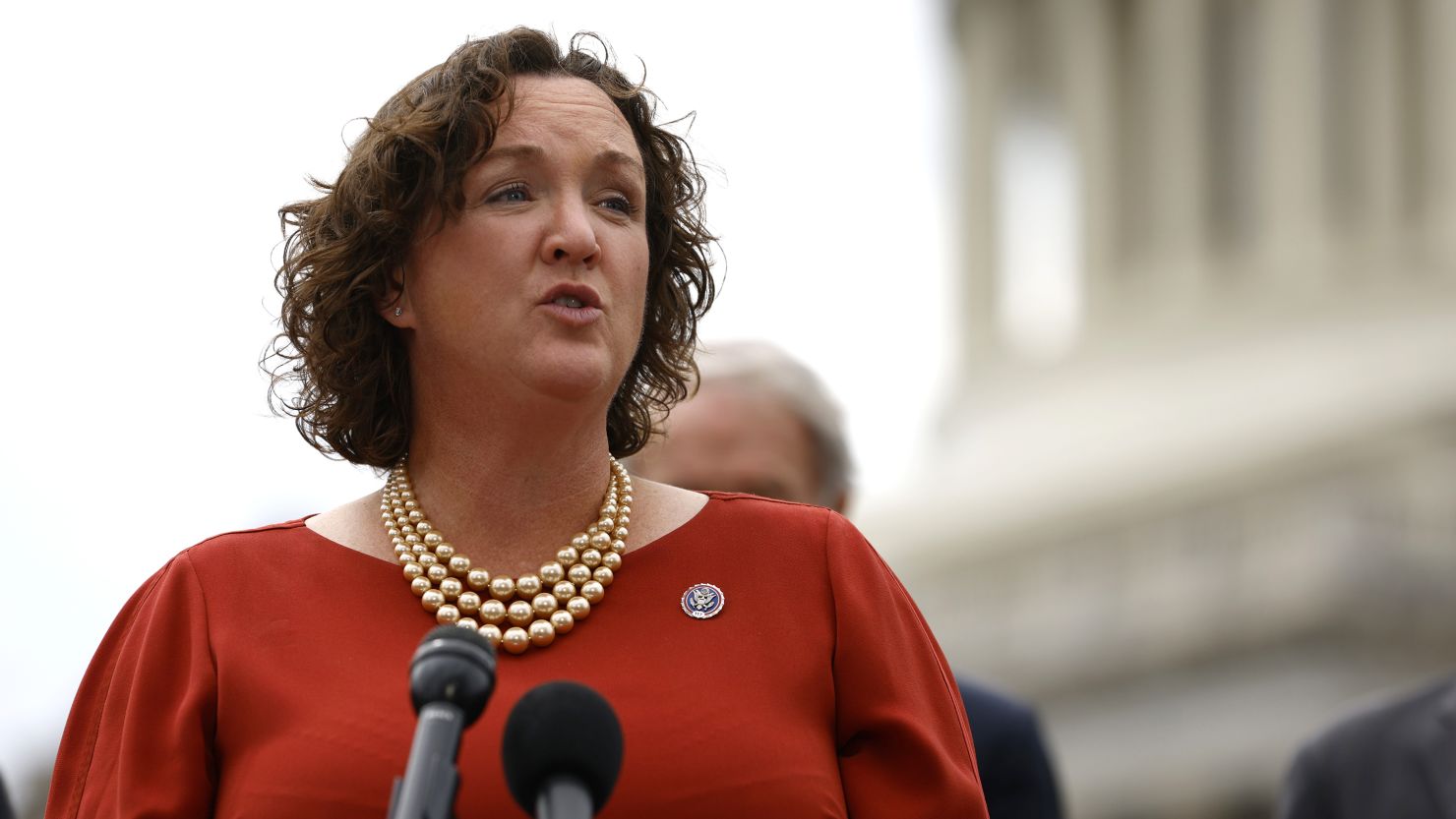Editor’s Note: Nicole Hemmer is an associate research scholar at Columbia University with the Obama Presidency Oral History Project and the author of “Messengers of the Right: Conservative Media and the Transformation of American Politics” and the forthcoming “Partisans: The Conservative Revolutionaries Who Remade American Politics in the 1990s.” She cohosts the history podcasts “Past Present” and “This Day in Esoteric Political History.” The views expressed in this commentary are those of the author. View more opinion on CNN.
At a private meeting of the House Democratic Caucus last week, California Rep. Katie Porter detailed the impact inflation was having on her family. She recounted a recent stop at the grocery store when she tossed a package of bacon into her cart before realizing its price had ballooned to nearly $10 a pound. It was a budget-busting price. She put it back.

Porter later said that, for some of her Democratic colleagues, hearing her story made the consequences of inflation real for the first time. “I had a colleague mention to me, ‘We’re not seeing it in the polls,’” she told Politico. “Well, you don’t know what to ask.”
That colleague’s claim about polls needs parsing. Polls have been registering serious concern about inflation for months. Despite this, the Democratic Party has recently seen gains in popularity, so perhaps the representative meant that Democrats did not appear to be paying a major price for it. But either way, the comment reflects a party out of touch with the issue most top-of-mind for voters.
Porter, a single mom to three children, has a tight enough budget that the $10-a-pound bacon didn’t make the cut. That makes her a rarity in Congress. Only four of the 535 representatives and senators are single parents. And as of 2020, a majority of congressional lawmakers were millionaires (Speaker Nancy Pelosi’s net worth reached nearly $115 million that year).
Porter’s story, and its effect on her fellow caucus members, shows how vital it is that members of Congress represent a wide range of backgrounds, families and identities – not because of some ambiguous appeal to identity politics, but because experiences like Porter’s are key to restoring the Democratic Party’s stature as a party responsive to the needs of working- and middle-class Americans.
When she ran for office in 2018, Porter realized that the wealth gap between most members of Congress and their constituents was almost guaranteed by the personal expense of the campaign. For a single mother, the extra child care costs created by the campaign was an enormous burden.
That year, a record number of women ran for office, exposing the need for more assistance for candidates who are also the primary caregivers in their families. And so, one of Porter’s first acts upon entering Congress was to introduce the Help America Run Act, which allowed people running for Congress to use campaign funds for things like child care, elder care, and health care premiums, parts of the care infrastructure that are particularly critical for single parents but important for anyone without considerable wealth.
Porter is, of course, not alone in that experience. In law school, she studied with Elizabeth Warren, who grew up in a family where money was increasingly scarce. Warren watched as her mother sought a paying job outside the home, and as her parents traded the family home for something smaller and more affordable. She, too, was briefly a single parent, caring for – and relying on the help of – her extended family. Warren would later funnel that experience into her fight for bankruptcy reform and consumer protections, activism that led her eventually to the Senate.
As Warren’s example shows, it’s not necessary to feel the pinch of inflation to fight for working- and middle-class families. She is, after all, also one of the Senate’s millionaires.
But it is one thing to channel past experiences into policy, and another to actually experience scrimping and saving while in office. What Porter offers is the ability to say: This is happening to me, right now, and it is having an effect on our constituents, too. That’s a powerful voice to have in the room when the Democratic caucus meets.
The idea that personal experience is a valuable tool for policymaking is not limited to household budgets. Several months ago, Representative Cori Bush of Missouri for the first time publicly shared that she was raped and had an abortion. Her revelation came in the midst of a House Oversight Committee hearing on abortion rights that was convened in response to new draconian restrictions on abortion passed by Texas this past fall.
At the hearing, Rep. Barbara Lee of California also spoke about her abortion at age 16, which took place in Mexico because the procedure wasn’t available in California at the time. Hearing their colleagues’ stories may not change Republican lawmakers’ minds, but they can have a real effect on the Democratic caucus as the party fights to secure abortion access at a time when the Supreme Court seems poised to overturn Roe v. Wade later this term.
Congress needs far more members like Porter and Bush, who not only have a set of meaningful personal experiences, but who are able to generate from those experiences an informed set of policy recommendations that would improve the lives of millions of Americans. Elite apathy is a particularly dangerous condition now, when faith in institutions has plummeted and extremist movements are feeding on feelings of frustration, despair and resentment. With more members like Porter and Bush, the party can rely less on polling and more on experiences that make real the needs of ordinary Americans.


